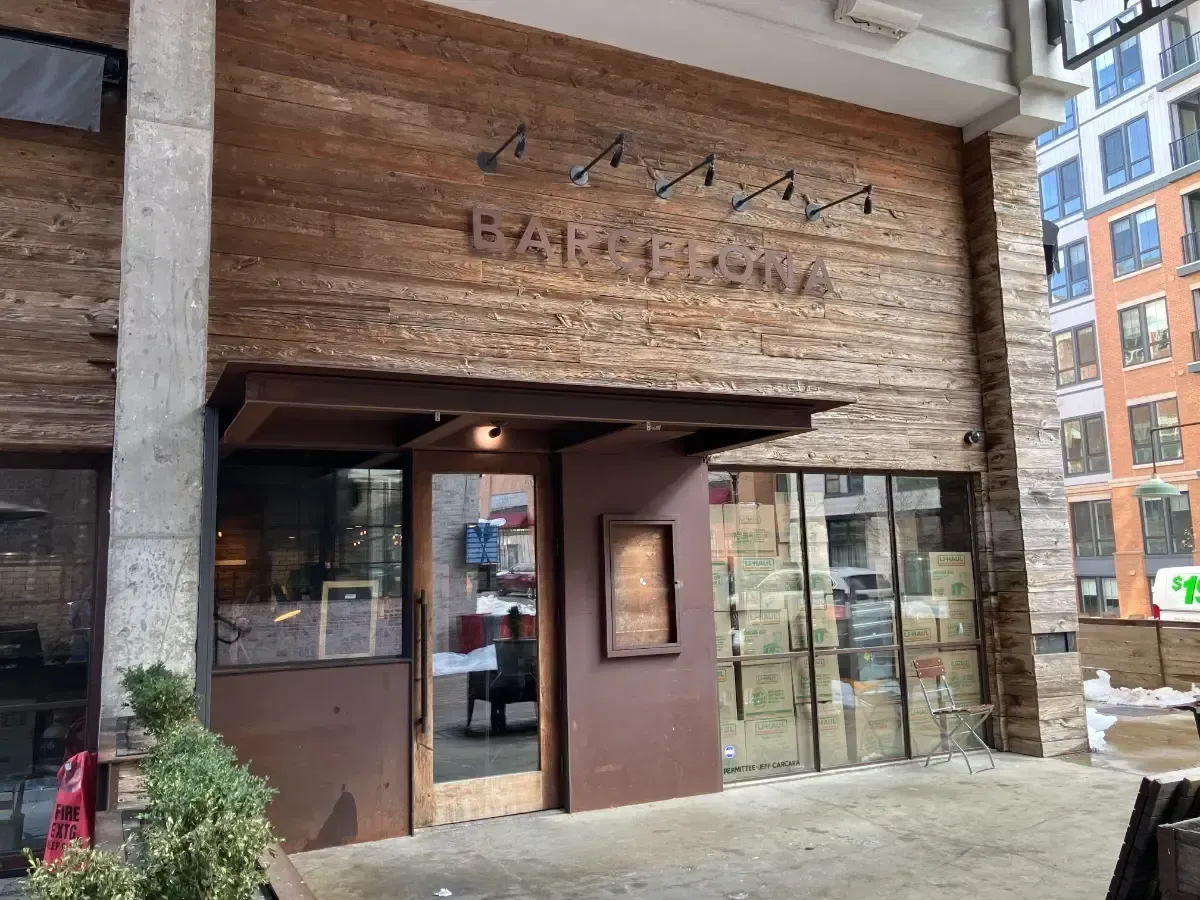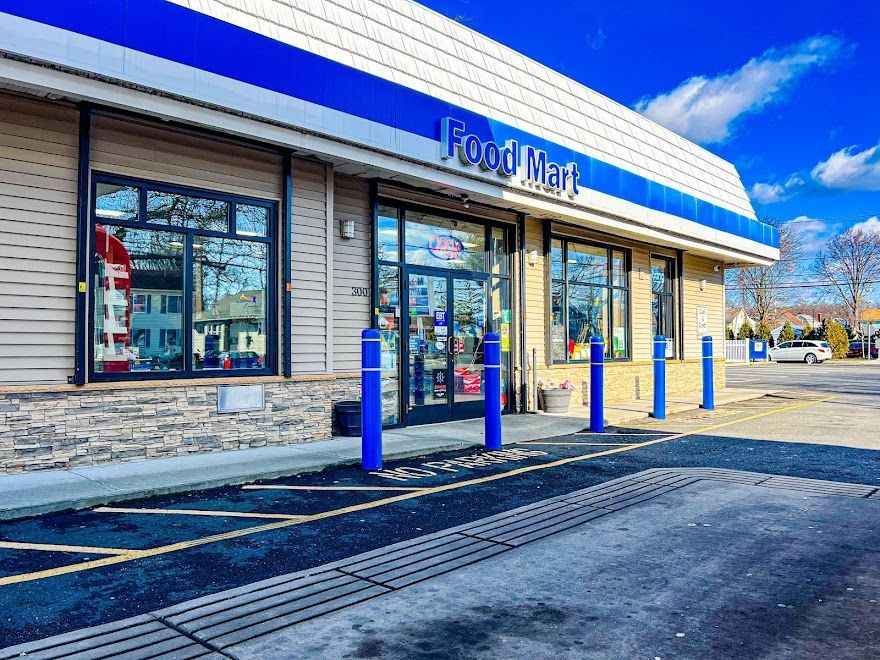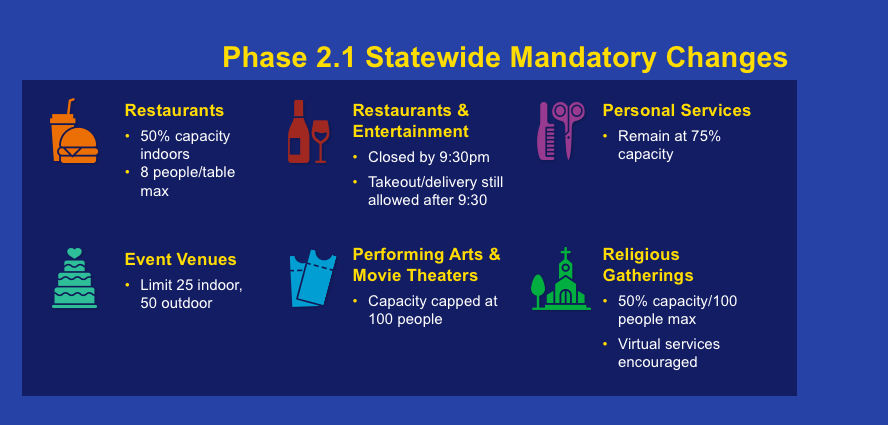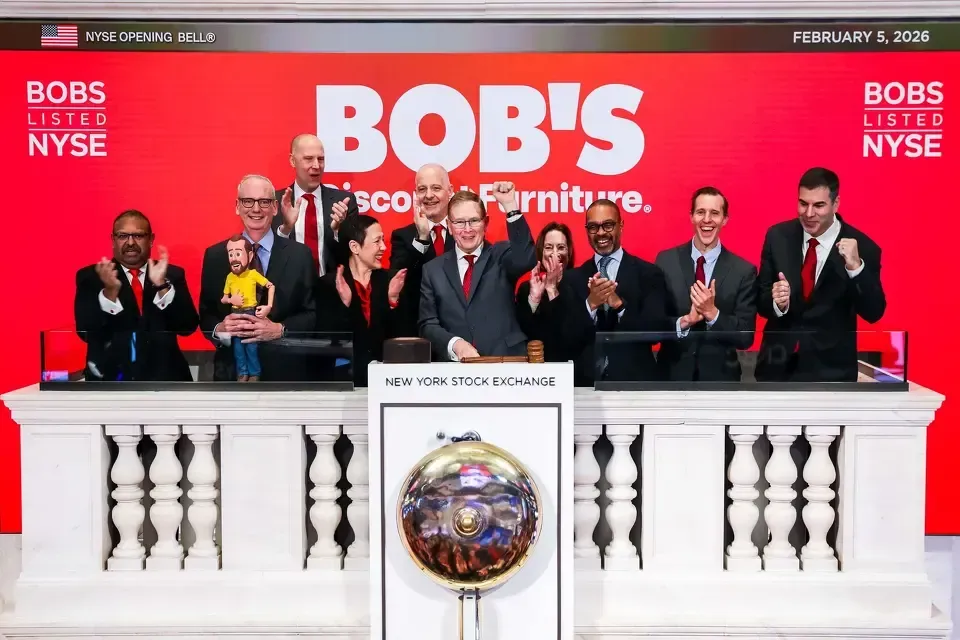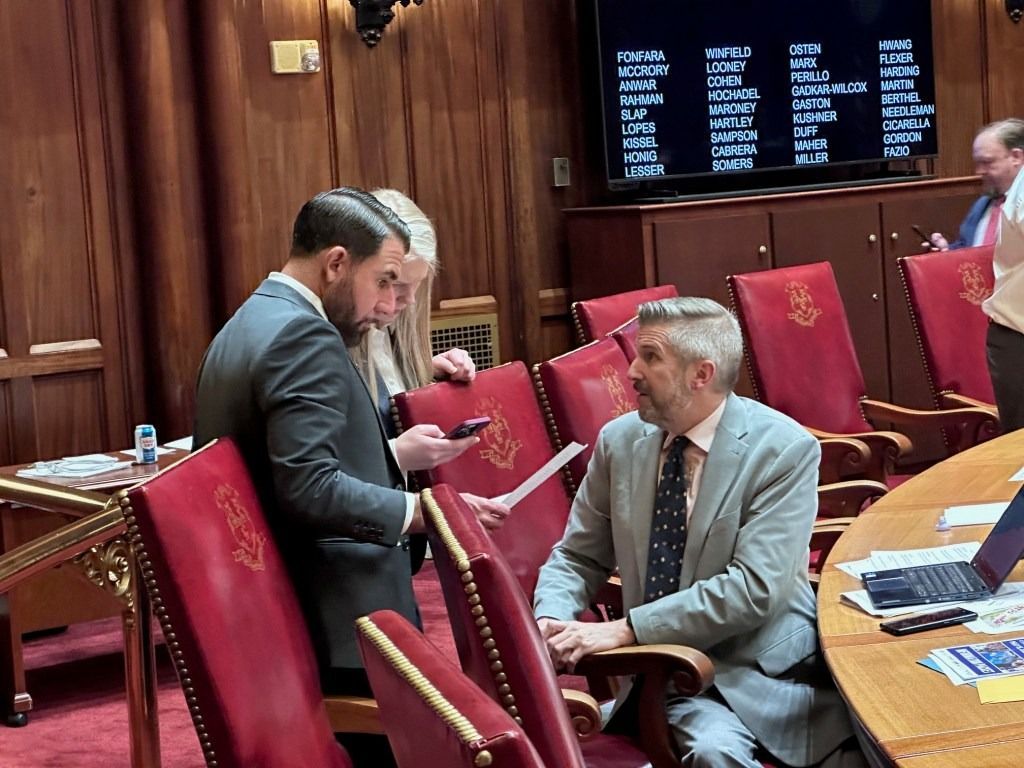CT BUSINESSES
Lamont orders some businesses to revert to Phase 2 COVID restrictions
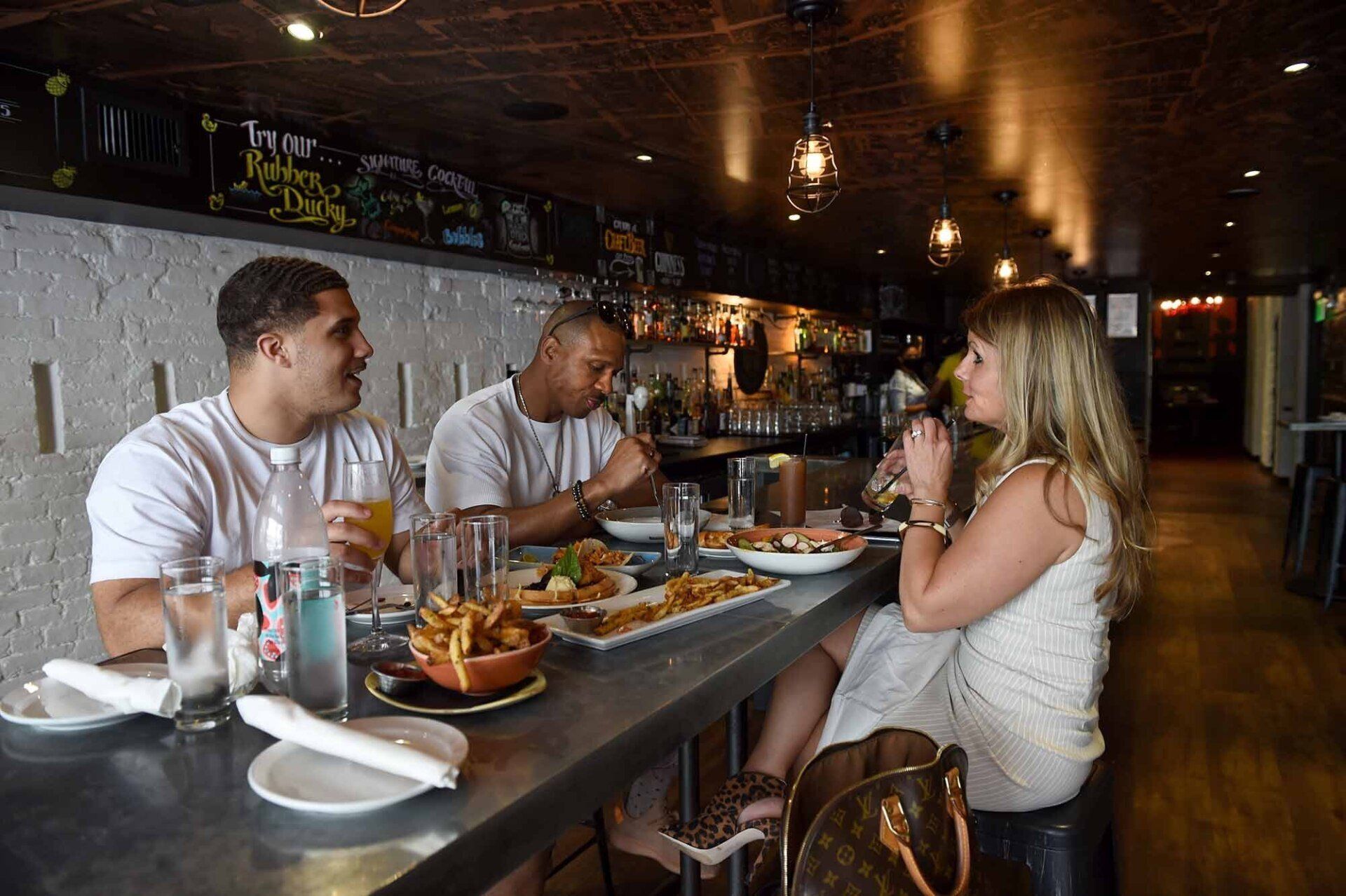
Tyler Little (left) and his parents, Ray and Grace enjoy a meal at Elm City Social in New Haven in June on the first day indoor dining was allowed after restaurants were shuttered for three months due to the COVID-19 pandemic.
Pointing to a growing number of COVID-19 cases in recent weeks, Gov. Ned Lamont on Monday tightened up restrictions for some Connecticut businesses less than a month after he loosened those rules to allow increased capacity at restaurants and performance venues.
Restaurants will now move back to 50% capacity and must close by 9:30 p.m. Takeout and delivery services can continue after the curfew, however. No more than eight people can sit around a restaurant table at a time. Since Oct. 8, eateries have been able to accommodate 75% of their normal capacity.
Personal services, such as hair and nail salons, will be allowed to remain at 75%.
Event venues must limit crowds to 25 people indoors and 50 people outdoors. Capacity is capped at 100 people for movie theaters and performing arts centers. And capacity at places of worship is restricted to 50%, or no more than 100 people.
Connecticut reported a 3.4% positivity rate from over the weekend. The seven-day COVID average was 3.6%.
Gov. Ned Lamont announced additional restrictions for some Connecticut businesses, such as restaurants, on Monday.
Monday’s rollback follows similar actions taken in nearby states. Massachusetts Gov. Charlie Baker announced earlier Monday that restaurants and other businesses in his state must close at 9:30 p.m.
“Overwhelmingly, our restaurants have been really good about following the protocols knowing they had to earn your confidence before you went in there,” Lamont said. “But after a certain era, we heard from a lot of our towns and municipal partners that enforcement was getting tougher. Some of these places were going later and there were a lot of people gathering. We want to make it easier for them to enforce the rules as well.”
Scott Dolch, head of the CT Restaurant Association, said the 9:30 p.m. curfew will be a challenge.
“Given the nature of our businesses, putting a hard stop on their ability to serve customers after 9:30 p.m. and not offering new options for grants or forgivable loans will be the final straw for many Connecticut small businesses already just barely keeping their doors open, ” he said in a statement after Lamont’s announcement. “In recent days, Governor Lamont has said the uptick in COVID cases is not being driven by restaurants, and we greatly appreciate that acknowledgement. We hope he and his administration will keep this fact in mind during the weeks and months ahead.”
Until recently, Lamont had left it up to municipalities to decide whether to move back to Phase 2. He recommended that areas considered to be “hot spots” – those with an influx of cases – implement the tougher restrictions. Hartford, Bridgeport, Stamford and other cities announced recently that they were reverting to Phase 2.
Leaders of two municipal lobbying groups said local officials appreciated that Lamont had granted nearly half the communities in Connecticut the option to restrict business activities.
But the heads of the Connecticut Conference of Municipalities and the Connecticut Council of Small Towns added that many local leaders were wary about limiting shops in their own communities knowing another jurisdiction — just five or 10 minutes away — might be going easier.
“It can be chaotic,” said Betsy Gara, executive director of COST. “A lot of people were questioning whether it makes sense. There shouldn’t be a different set of rules just because you happen to be across a geographic border.”
Joe DeLong, executive director of CCM, praised Lamont for offering options to cities and towns with higher infection rates, but said communities were wary of acting alone. “Putting that coordinated effort together takes time, and it may be time — from a public health standpoint — that we don’t have.”
DeLong also said he’s confident Lamont would have no problems with municipal leaders in returning to Phase 2 limitations. “There may not be 100 percent universal support, but I would expect universal cooperation,” he added.

